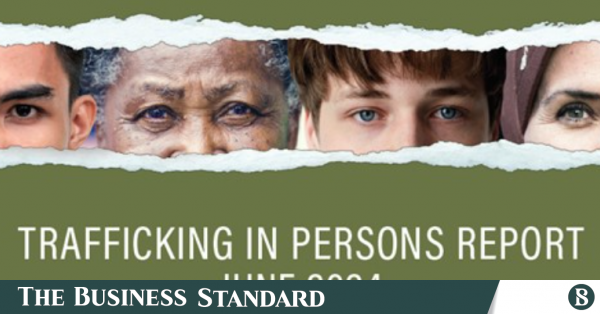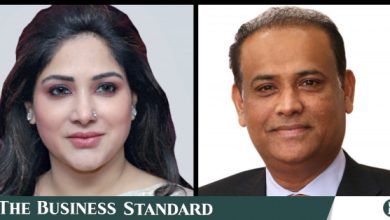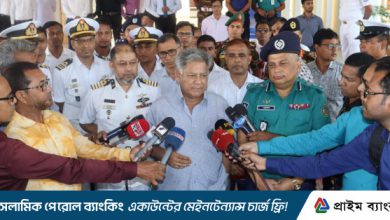Trafficking in Persons: Bangladesh retains Tier 2 status for 5th consecutive year


The Government of Bangladesh does not fully meet the minimum standards for the elimination of trafficking but is making significant efforts to do so, says the report
TIP report. Photo: US State Department programme on X (formerly Twitter).
“>
TIP report. Photo: US State Department programme on X (formerly Twitter).
Bangladesh has maintained its Tier 2 status in the 2024 Trafficking in Persons (TIP) report by the US State Department, indicating significant efforts in combating human trafficking but falling short of fully meeting the minimum standards for eradication.
“The Government of Bangladesh does not fully meet the minimum standards for the elimination of trafficking but is making significant efforts to do so. The government demonstrated overall increasing efforts compared with the previous reporting period; therefore Bangladesh remained on Tier 2. These efforts included increasing investigations, prosecutions, and convictions against traffickers,” reads the report published yesterday (24 June).
This marks the fifth consecutive year since 2020 that Bangladesh has held its position in Tier 2.
Other South Asian countries such as India and Bhutan also remain in Tier 2, while Nepal and Maldives are on the Tier 2 watch list. Afghanistan has been placed in Tier 3.
According to the report, the government formally adopted victim identification guidelines for front-line officials and identified more victims of trafficking. It also amended its overseas migrant workers policy to bring recruitment agents under greater oversight, thereby increasing accountability.
In addition, the government deposited funding in a victim compensation fund for trafficking victims for the first time, it added.
The government, however, did not meet the minimum standards in several key areas.
“Although the government increased law enforcement efforts, it did not take adequate steps to address internal trafficking crimes – including sex trafficking and forced child labour, or official complicity, both of which remained pervasive, and authorities continued to conflate human trafficking with migrant smuggling,” the report states.
It added, the government did not sufficiently investigate and prosecute trafficking cases involving the exploitation of Rohingya refugees.
“The government did not establish any new Anti-Trafficking Tribunals. Victim protection efforts remained insufficient, and officials often lacked a victim-centred and trauma-informed approach when interacting with trafficking survivors.”
Shelters lacked specialised services for trafficking victims and few shelters were available outside Dhaka, particularly for men, it said.
“The government continued to permit set recruitment fees which rendered many migrant workers indebted, increasing their vulnerability to trafficking.”
Furthermore, courts sentenced the majority of traffickers to fines rather than jail time, which weakened deterrence, undercut the government’s overall anti-trafficking efforts, and likely created security and safety concerns for victims, said the report.
The annual report classifies governments based on their perceived efforts to address and combat human trafficking, assigning them to one of three tiers.
The US State Department places each country in this report into one of four categories.
This placement is based not on the size of a country’s problem but on the extent of government efforts to meet the Trafficking Victims Protection Act’s (TVPA) minimum standards for the elimination of human trafficking, which are generally consistent with the Palermo Protocol.
Tier 1 consists of countries that meet the minimum standards outlined in the Trafficking Victims Protection Act of 2000 (TVPA) for eliminating trafficking.
Tier 2 comprises countries that do not fully meet these standards but are making significant efforts to do so.




